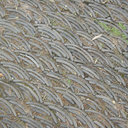In vivo anti-inflammatory and analgesic activities of strictosamide from Nauclea officinalis.
Paraules clau
Resum
BACKGROUND
Strictosamide is the main representative constituent of Nauclea officinalis Pierre ex Pitard (Rubiaceae), which has been used for a long time in China to treat diseases related to infection and inflammation, but its pharmacological activities are not well studied.
OBJECTIVE
This work evaluates the anti-inflammatory and analgesic activities of strictosamide by in vivo experiments.
METHODS
The anti-inflammatory activity was assessed in mice by models of 12-O-tetradecanoylphorbol-13-acetate (TPA)-induced ear edema, acetic acid-elevated vascular permeability, and carboxymethylcellulose sodium (CMC-Na)-induced leukocyte migration. The analgesic activity was estimated in mice using acetic acid-induced writhing and hot-plate tests. Compound was injected to mice twice a day for 3 d at doses of 10, 20, and 40 mg/kg.
RESULTS
At 20 and 40 mg/kg, strictosamide obviously decreased the TPA-induced mice ear edema (24.7 and 28.1% inhibition, respectively), and significantly inhibited acetic acid-stimulated peritoneal vascular permeability in mice (23.3 and 33.4% inhibition, respectively). It also significantly decreased the leukocytes in the mice peritoneal cavity induced by CMC-Na at all the tested doses (46.0, 49.1, and 58.7% inhibition, respectively). To acetic acid-induced writhing test in mice, strictosamide markedly prolonged the pain latency at 20 and 40 mg/kg and decreased the writhing counts at 40 mg/kg (49.7% inhibition). However, it did not obviously improve the pain threshold of mice in hot-plate test.
CONCLUSIONS
Strictosamide may have important effects on inflammation and inflammatory pain. The results provide scientific support for the role of strictosamide in the use of N. officinalis to treat inflammatory diseases.





